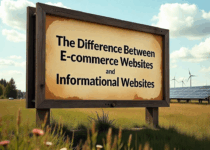Scaling a Family-Owned Business After the Founder Dies
A business typically has both property and liabilities. It is the executor’s duty to dispose of liabilities and maximize the value of assets. Some assets can be extremely valuable, for example, a store in a prominent place along a busy road. In such examples, the executor may be in a position to find a buyer who realizes the value of the location of the business and is ready to take it.
On the other hand, there could be those examples where the company has no valuable assets upon the proprietor being passed.
For example, I once had a freelance IT consulting business. The principal asset of that business was my knowledge. Once I retired, I could not sell or rent out my expertise and so had to close the business.
The result depends largely on the preparation made for its death. If the owner dies, without a will, what happens next, the determination of it will fall for a judge and applicable local laws. However, if there is a will, it should clearly underline the owner’s wishes.

Continuation of a family firm beyond the death of the founder: Key Issues and strategies
When the founder of a family business dies, the future of the company is not certain. The disadvantage of a leader who often symbolizes the basic values of business can create a big difference. Despite the emotional effect, this period also presents a unique opportunity for development and change.
Undeniably, growing the family business after the death of the founder is tough, as there are a series of emotional and operating obstacles. With a strategic plan, however, sturdy leadership and a vision in complete agreement, there is a possibility of not only growing a business but also flourishing.
Consider the following strategies to help navigate this critical journey
1. Understand the Emotional Reality:
Before the practical issues of growing the business are addressed, there is a need to recognize the emotional and psychological impact on family members, employees, and stakeholders. The founder was often not just the business’s leader but its emotional anchor. Family members, especially those closest to the founder, may feel grief, uncertainty, and perhaps conflict about the direction the business should take.
Consider The Hershey Company, which was founded by Milton Hershey. Upon his death, his vision was continued through both the family and the business. His death did cause some tension in that family members struggled with how to continue on with the business and honor him appropriately.
Over time, it transitioned to more professional management, but the emotional and family ties were certainly strong. It is important to give all parties the time and space to grieve the loss. Family meetings or even professional counseling can help facilitate these discussions, ensuring that the focus remains on the business’s long-term success.
2. Develop a Succession Plan:
One of the risks that is a consequence of such an event pertains to incomplete succession planning when the founder, for whatever reasons, dies suddenly. Without proper designation of any heir or unstructured transition policies, the consequence could be damage to the organizational structure or dissolution.
Conversely, businesses with very well-established succession plans are found to be rather more likely to thrive.
Consider Walmart as an example of this. Upon the death of its founder Sam Walton, one would have immediately assumed business adjustment was the swift transition. However Wal-Mart had organized his children well in advance: each sibling having responsibility for the different aspects that made up Wal-Mart as an entity ensured continuing growth of the company. If no successor is apparent, then the need to look for leadership outside the family may be considered.
Though this is often a hard decision for some family businesses to make, bringing in leaders with specialized skills and new perspectives can often give them the path needed for scaling successfully. Companies like Ford and Berkshire Hathaway show how family-run businesses are able to continue prospering with leadership beyond the family.
3. Establish the Future Vision:
After his death, some reassessment about the company vision may be at hand. Of course, business goals and philosophies may change over time according to the ideas of the deceased founder, as the environment likewise changes, too. It simply means one would not totally neglect the founder’s legacy but further adapt it with new markets, technologies, and customer expectations.
Take Patagonia for instance. Founded by, and always led by, the Chouinard family from its beginning until founder Yvon Chouinard chose to give the company away in 2022 to a vision more sustainable to answer modern environmental concerns.
Here, Patagonia has remained true to its core values while moving into new areas through a reimagining of the company’s purpose. The thing is, it is about sustaining the root that made it successful while venturing out to find new growth opportunities. Be clear on which things from the founder’s vision need to be retained and where innovation is imperative to remain competitive.
4. Innovate on existing strengths:
Scaling a business after the founder’s death does not mean discarding past successes. On the contrary, building on the strengths of the business is crucial. Many family businesses thrive because of deep customer relationships and a solid reputation that has been fostered over many years, if not decades.
Consider Jollibee, a Filipino fast-food chain founded by Tony Tan Caktiong. After the founder’s death, the company didn’t sit on its laurels but aggressively expanded, acquiring restaurant chains such as Smashburger and The Coffee Bean & Tea Leaf. It has remained committed to serving quality and family values while still exploring growth opportunities outside the traditional market for the business.
The key is retaining what’s working and using that as a robust foundation for growth. Whether this is customer loyalty, brand recognition, or product differentiation, this strength will offer a sound basis for future success.
5. Professionalize the Management:
Many family businesses struggle with the problem of being “family first,” where family members are often placed in positions that may be well beyond their experience or expertise. This can become a significant scaling obstacle, especially for industries that require specialized knowledge or advanced management techniques.
Consider the case of Ray Kroc, who bought McDonald’s and then made the conscious decision to professionalize the business. He scaled it from a modest entity to an empire with the help of a team of executives from outside the family, although family members were also welcome.
The management brought in a level of expertise into the business that was needed to grow it.If your family business is not capable of scaling internally, consider bringing in non-family executives or managers with the relevant experience to drive expansion. Professionalization doesn’t have to mean losing the core values of the business-it’s all about adding the skills and knowledge required for its future success.
6. Maintain Strong Communication:
Effective communication is the key to any scaling process of a business; however, in the case of a family business, it becomes very crucial at the death of the founder. The family members are emotionally attached to the company and to each other, and poor communication will lead to misunderstandings, hurt feelings, and possible rifts. Transparency and openness are key in communication.
This could mean regular family meetings on matters concerning the business, making sure each member is on the same page-even when it involves having some tough conversations about roles and responsibilities. One is S.C. Johnson & Son, a fifth-generation family business that places lots of emphasis on communication at all levels-from family board meetings to employee engagement.
Such an espousal of open dialogue has enabled it to transform and adapt, especially at times when transitions in the family were happening.
7. Bring in Outside Investors or Partners:
In the event of scaling up, requiring substantial capital or resources that are out of the family business’s league, the need to seek out external investors or strategic partnerships may arise. Most large family businesses resist bringing outsiders onboard, but this might be an important step in achieving further and sustained growth.
An excellent example is The Lego Group, which has maintained ownership within the family but brought in private equity investors to help facilitate the growth of the company in the early 2000s. This was the catalyst that allowed Lego to update its manufacturing process and expand into a global company while still maintaining core family values at the heart of the business.
8. Change Yet Preserve:
Scaling requires a delicate balance: embracing change is vital for growth, but it’s equally important to honor the family business’s traditions. Indeed, many businesses thrive after the founder’s passing by preserving those traditions while adapting to future needs.
Take the case of Mars, Inc. The business has grown with new markets, modern methods of production, and a shift in consumer preference, while at the same time holding on to the core family values of integrity, quality, and long-term vision. It is this ability to preserve the core principles while growing that has been important for its continued success.
Conclusion:
It is never easy to scale up a family-owned business upon the demise of the owner. The balance between honoring the memory of the founder, dealing with the emotional fallouts of his death, and taking steps to move the business forward can be a delicate one. Clearly planned succession, effective communication, professionalization of management, and innovation with tradition are some of the ways family businesses can handle this transition smoothly. With effective leadership and a forward-looking approach, the business can continue to thrive and grow to ensure long-term success long after the founder’s passing.
Work with Geeksvillage!
At GeeksVillage, we don’t just build websites—we create lasting digital experiences tailored to your needs. Whether you need a new website, reliable hosting, or professional printing services, we’re here to help. We focus on integrity and providing solutions that support your business goals and positively impact your community. Let’s build something great together—reach out today!



